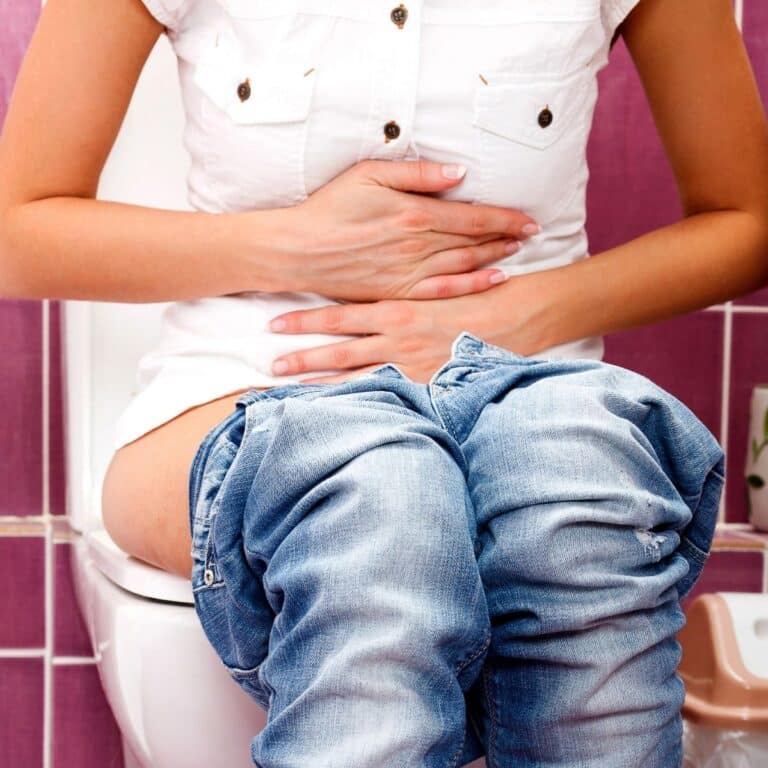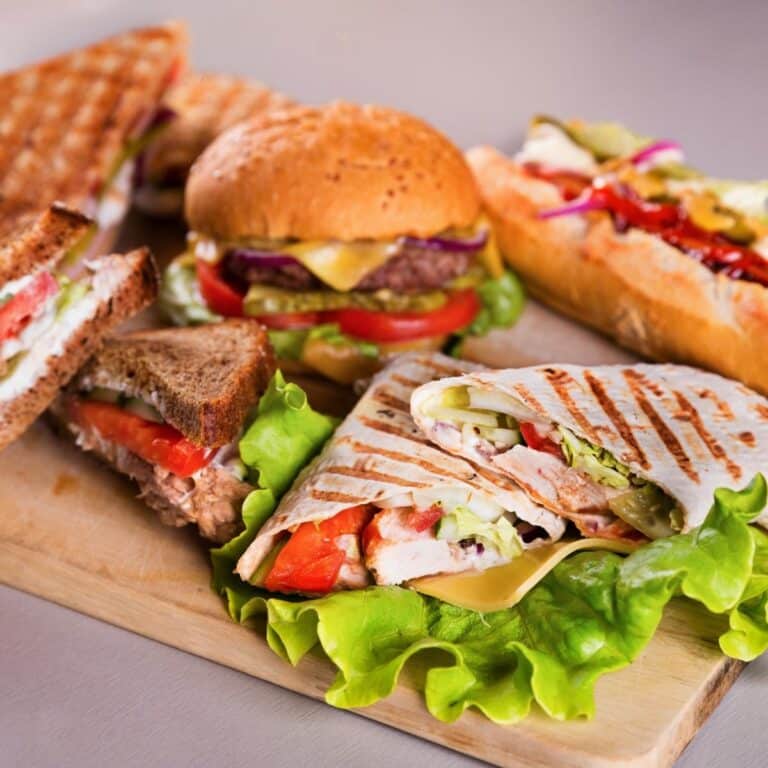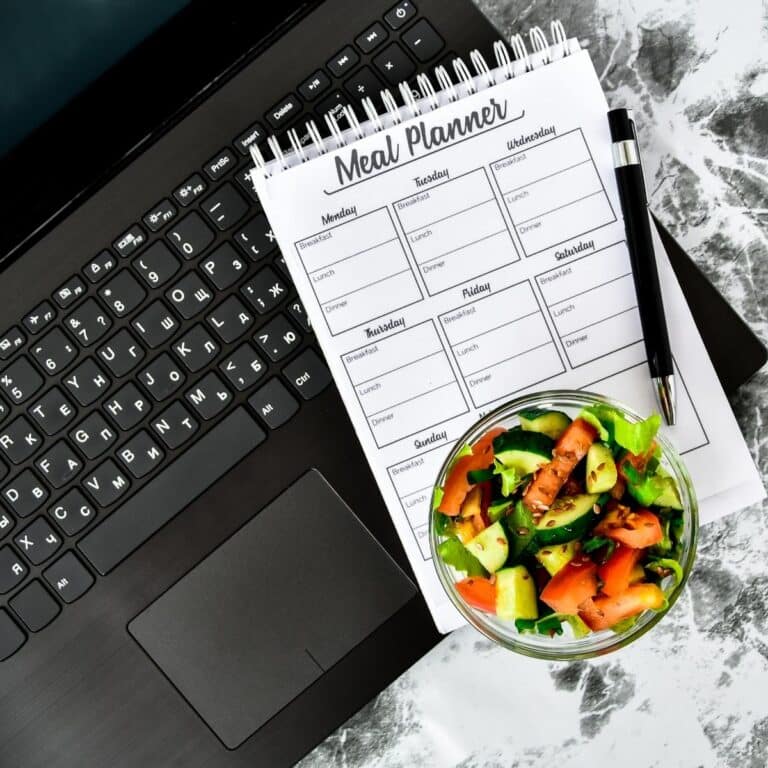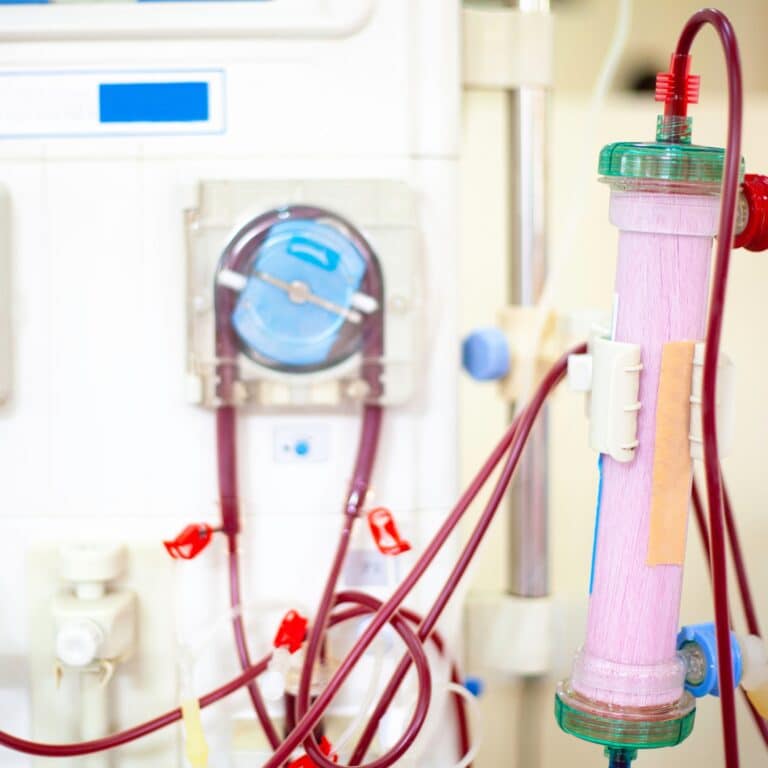Benefits Of A Renal Diet
Did you know that chronic kidney disease (CKD) affects over 37 million people in the United States alone? That's a staggering number, and if you or someone you love is part of it, then you already understand the importance of taking care of your kidneys.
One crucial aspect of managing kidney failure is following a renal diet plan. This type of diet can help protect your kidneys from further damage, prevent mineral buildup, manage kidney disease, and control high blood pressure and diabetes.
A renal diet may sound daunting at first, but with the help of a registered dietitian and some lifestyle adjustments, it can become a sustainable habit that improves your overall health and well-being.
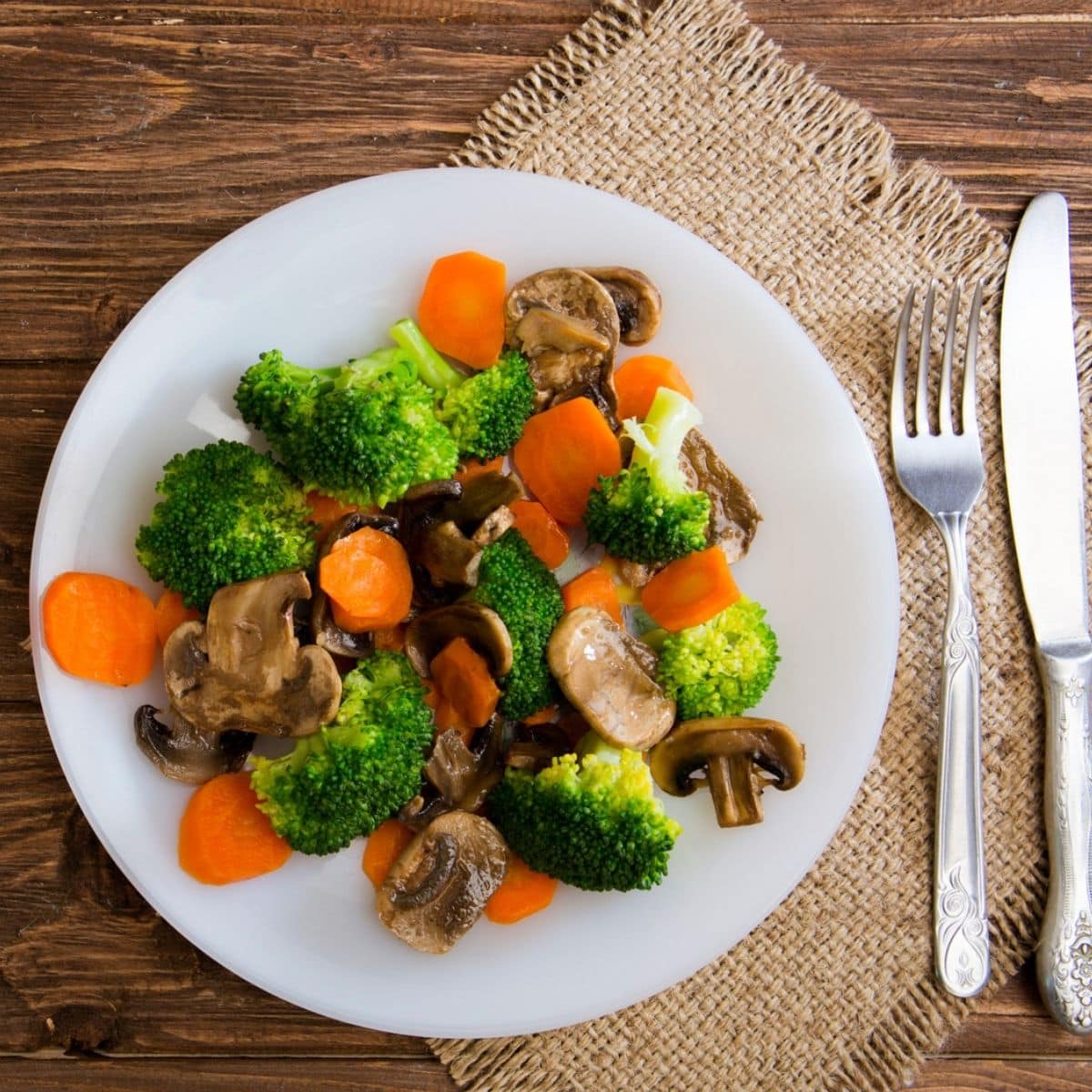
By controlling sodium, potassium, phosphorus intake as well as adjusting protein, fat and carbohydrate consumption to avoid overworking the kidneys, this personalized eating plan can make all the difference.
In this article, we'll explore all the benefits that come with following a renal diet plan so that you can take charge of your health and improve your quality of life. Giving this diabetic renal diet meal plan a try is a good idea.
Jump to:
- Overview
- Benefits of A Renal Diet
- Importance of Pre-Dialysis Diet
- Controlling Sodium, Potassium, and Phosphorus
- Personalized Eating Plan
- Adjustments Based on CKD Stage
- Fluid Limitation
- Portion Control
- Other Considerations
- FAQs of the Benefits of Following a Good Kidney Failure Diet
- You Take The Reins Of Your Health With A Good Renal Diet
Overview
Kidney failure is a fairly common disease that affects a lot of people in the United States.
Acute renal failure and chronic renal failure are the two types of kidney failure. Acute renal failure or acute kidney injury is the more common one and occurs when the flow of blood to the kidneys is suddenly cut off.
Chronic renal failure is caused over time, usually by conditions such as high blood pressure and diabetes. Both will result in the accumulation of waste products in the body and should be treated as soon as possible after diagnosis.
Since failure of the kidneys affects most organs, it is imperative that the person receives medical attention and watches their diet closely. Among the various procedures to combat kidney failure, dialysis is a very important one. It is the process of removing the wastes accumulated in the body.
Additionally, one can follow a kidney failure meal plan before starting the dialysis procedure.
Today, there are several ways to follow a pre-dialysis diet specifically for your kidney failure. The main principle behind a pre-dialysis diet is to keep the load on the kidneys to a minimum. A good diet is essential to combat renal failure, and one of the best ones to follow is a kidney failure diet.
A renal dietitian can help you plan meals that are tailored to your individual needs, ensuring nutrient balance and disease prevention. Following a renal diet not only helps manage kidney disease but also prevents other health problems like high blood pressure and diabetes.
By working with your nephrologist, you can ensure that your dietary supplements are appropriate for your condition. It's important to note that some supplements may interact with medications or worsen existing conditions, so always consult with a healthcare provider before taking them.
Incorporating a renal diet into your daily routine may seem daunting, but it can significantly improve your overall health and wellbeing. With the guidance of a qualified renal dietitian, you'll learn how to make small changes that have significant impacts on your kidney function.
For More Recipes and Ideas --->> Get Your Free Meals and Recipes That Are Perfect for Pre-Dialysis Diets, Pre-Dialysis with Diabetes, or Dialysis Diets.
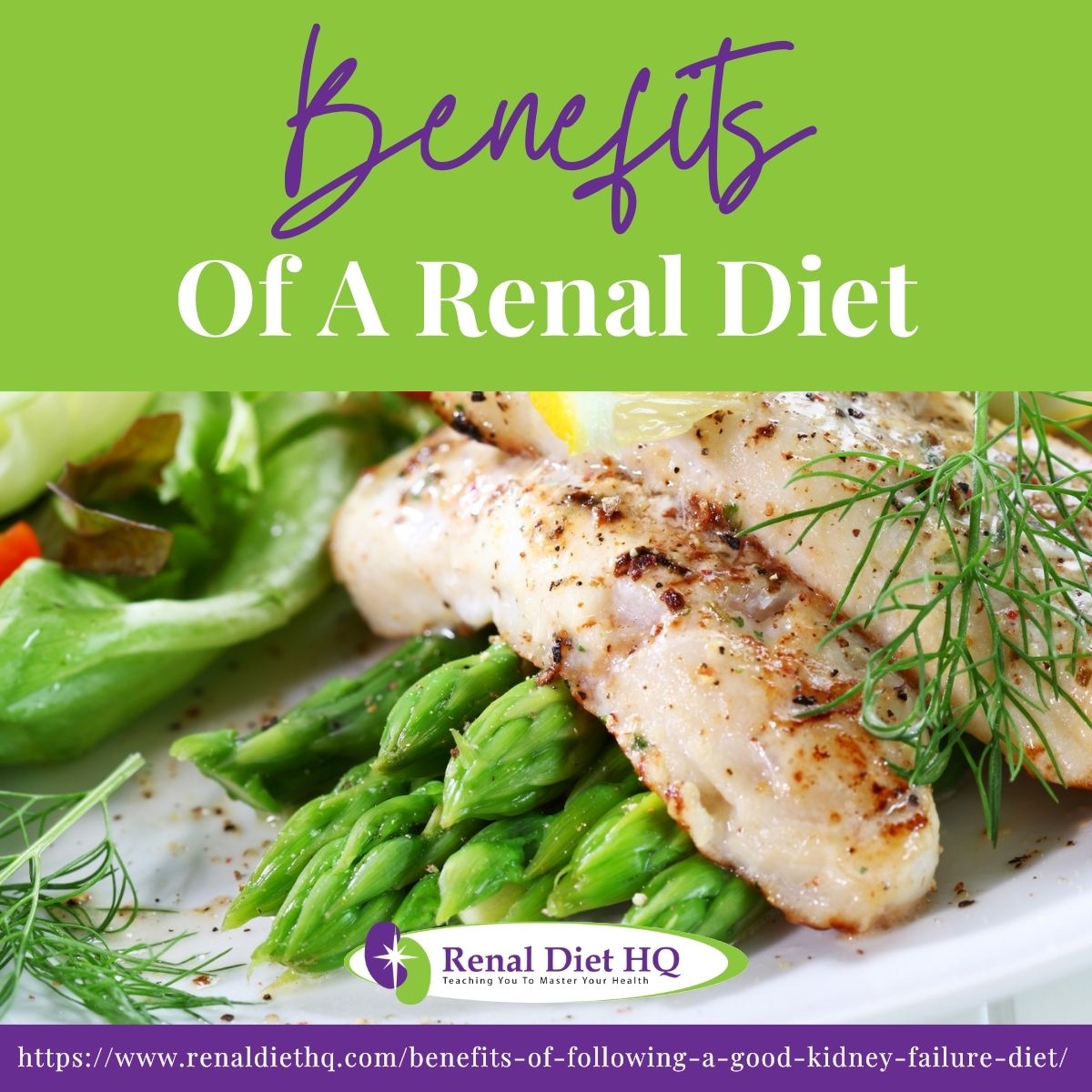
Benefits of A Renal Diet
Switching to a renal diet, specifically designed for individuals with chronic kidney disease, can bring significant health benefits to you. This specialized diet aims to manage the progression of CKD, minimize symptoms, and reduce the risk of complications.
By following a renal diet, you can help protect your kidneys and enhance your overall well-being.
One of the key benefits of a renal diet is the regulation of key nutrients. By carefully controlling your intake of protein, sodium, potassium, phosphorus, and fluids, you can alleviate the workload on your kidneys.
Restricting protein intake helps prevent the buildup of waste products in your bloodstream, which can reduce the strain on your kidneys.
Limiting sodium intake helps manage blood pressure and fluid balance, as excessive sodium can lead to fluid retention. By monitoring your potassium and phosphorus intake, you can maintain proper electrolyte balance and prevent imbalances that can harm your kidneys.
By following a personalized eating plan that is tailored to your specific needs and stage of CKD, you can better manage your kidney disease. With the help of a dietitian consultation, you can create an effective meal plan that follows the dietary restrictions of a kidney diet.
Moreover, a renal diet can positively impact your cardiovascular health. High blood pressure, a common complication of CKD, puts a strain on your heart. By following a renal diet, which emphasizes low sodium and fluid intake, you can help control your blood pressure and reduce the risk of cardiovascular problems such as heart disease and stroke.
Another benefit of a renal diet is the reduction of symptoms associated with CKD. By managing your diet and following fluid restriction guidelines for CKD, you can alleviate symptoms like fatigue, swelling, and shortness of breath. Controlling fluid intake helps prevent fluid overload, reducing swelling and easing the burden on your cardiovascular system.
Monitoring phosphorus intake is crucial, as excessive phosphorus levels can lead to bone and mineral disorders, causing pain and discomfort. By regulating your diet, you can alleviate these symptoms and enhance your quality of life.
In addition to these health benefits, a renal diet can also promote better management of other conditions commonly associated with CKD, such as diabetes and obesity. By monitoring your carbohydrate and calorie intake, you can help manage blood sugar levels and maintain a healthy weight, both of which are crucial for overall health and CKD management.
Overall, adopting a renal diet can bring numerous health benefits for individuals with chronic kidney disease. By carefully managing your nutrient intake, you can protect your kidneys, improve cardiovascular health, alleviate symptoms, and better manage associated conditions.
Working closely with a healthcare professional or a registered dietitian can help you develop a personalized renal diet plan that suits your specific needs and goals.
Importance of Pre-Dialysis Diet
Eating the right foods before starting dialysis is crucial to avoid further accumulation of waste products in your body and can make a world of difference in improving your health. It can also help slow down the progression of kidney disease.
Pre-dialysis nutrition plays a vital role in controlling the intake of sodium, potassium, phosphorus, and fluids. By following dietary restrictions and carefully selecting food options, you can keep the load on your kidneys to a minimum.
To ensure that you're making the most out of your pre-dialysis diet plan, it's essential to have nutritional counseling from a registered dietitian. They can help you create a meal plan that works best for your individual needs while also providing guidance on portion control and food preparation techniques.
This will not only improve outcomes but also make it easier for you to stick with the plan long-term.
Here are four things to consider when it comes to pre-dialysis meal planning:
- Choose foods with low potassium level like apples or cauliflower.
- Limit high phosphate foods such as bran cereals or nuts.
- Use herbs and spices instead of salt for flavoring.
- Control caloric intake based on age, gender, body size, and activity level.
By incorporating these tips into your pre-dialysis diet plan along with regular medical care from healthcare providers specializing in urology and kidney medicine, you'll be taking important steps towards managing kidney disease effectively.
Controlling Sodium, Potassium, and Phosphorus
Controlling the intake of sodium, potassium, and phosphorus is crucial for those with kidney disease to manage their health effectively.
Sodium is found in table salt and is widely used in food preparation. Reducing salt intake is important in controlling kidney disease. Suggestions to reduce salt intake include not using salt when cooking or eating, reading food labels, avoiding certain foods, and choosing lower salt or no salt added options.
Potassium builds up in the blood when kidneys don't work properly and can cause changes in heartbeats or lead to cardiovascular events. Potassium-rich foods that need to be avoided include melons, bananas, oranges, avocado, prune juice, tomatoes, dried beans, pumpkin, winter squash, cooked greens, broccoli, Brussels sprouts, nuts and nut butters.
Bran cereals, granola, salt substitutes, molasses, canned fruits, potatoes, and sweet potatoes also need to be limited. Low potassium foods, such as apples, cauliflower, and white rice, are recommended.
Dairy foods are the major source of phosphorus in the diet. Some vegetables also contain phosphorus and should be limited. Certain cereals, bread, and crackers should also be limited. Soft drinks, especially dark-colored sodas and beer contain phosphorus and should be avoided.
Food safety is also important for kidney disease patients. People with kidney disease or transplant are at higher risk for foodborne illness so you should always be mindful of food safety practices.
Incorporating these guidelines into your renal diet plan will help you manage your health more effectively.
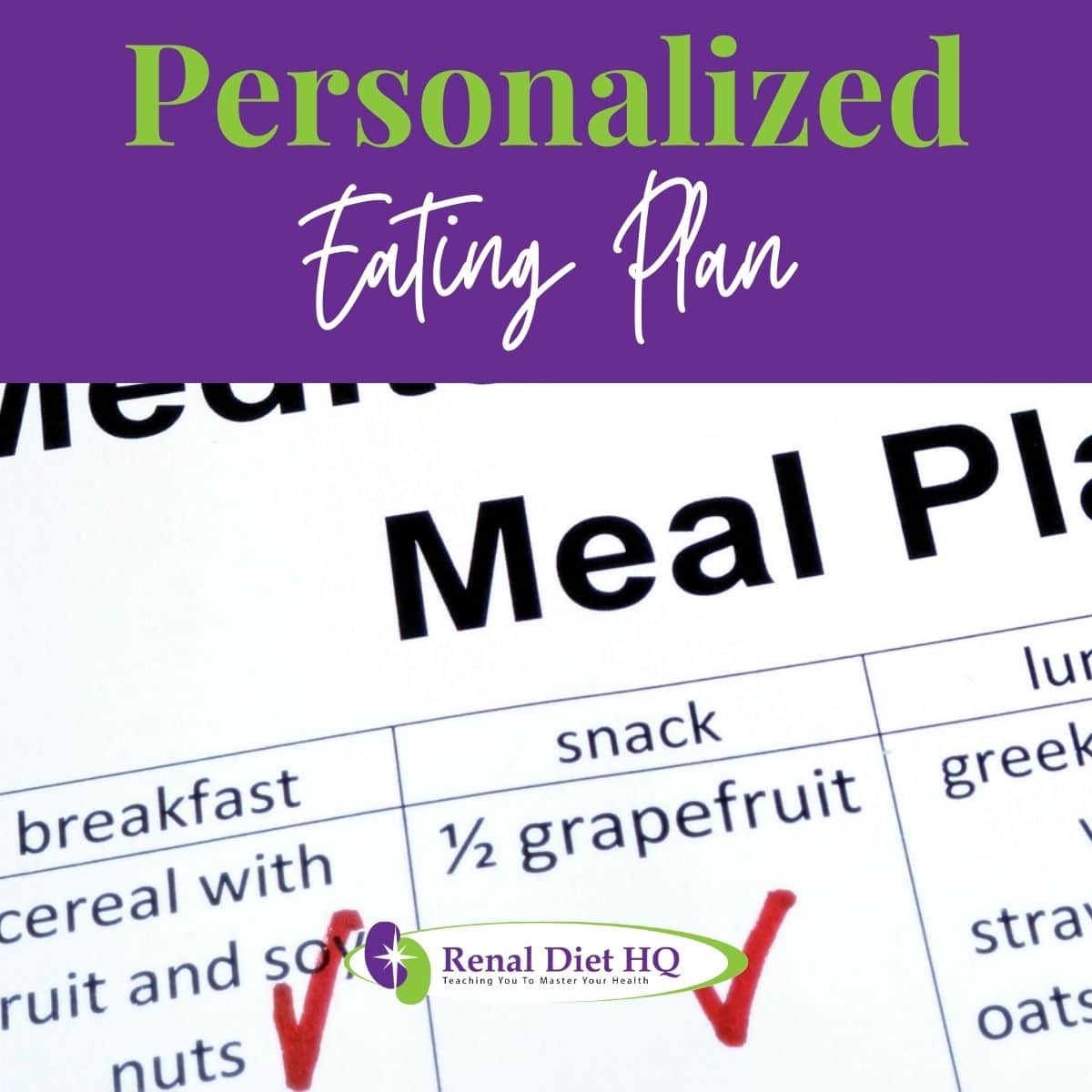
Personalized Eating Plan
To manage your kidney disease effectively, it's important to create a personalized eating plan. This plan should limit certain foods and fluids, adjust nutrient levels based on your stage of CKD, and incorporate portion control techniques.
To get started, consult with a dietitian who can help you determine the right amount of protein, healthy fats like olive oil, and whole grains for your body. Fortunately, many insurance plans cover visits with a dietitian.
Your personalized eating plan will also include recommendations for low potassium foods such as apples and cauliflower as well as tips for limiting sodium intake to less than 2,000 milligrams per day. Portion sizes are also important to consider since overeating can put additional stress on your kidneys.
Adjustments Based on CKD Stage
As a person with kidney disease, it's important to be aware of adjustments that may need to be made to your eating plan based on the stage of CKD you're in.
For example, pre-dialysis kidney disease patients have to be mindful of maintaining a modest protein restriction in their kidney diet as high levels of protein can increase pressure in the kidneys, causing further damage.
Moreover, the ability of the kidneys to regulate potassium and phosphorus declines as kidney function declines. High potassium foods such as avocados, spinach, and beans should be avoided while low potassium options like apples, cauliflower, and white rice can be consumed.
Similarly, too much phosphorus intake can lead to weak bones; hence low phosphorus foods like Italian bread and corn cereals should be preferred over high phosphorus foods like bran cereals and nuts.
Fluid management strategies are also significant in controlling kidney disease progression. Limiting fluids is necessary for people with kidney disease especially at advanced stages as extra fluids can accumulate in the body causing swelling or shortness of breath. There are fluids to hydrate with kidney disorder.
Measuring fluids using small cups or measuring tools can help maintain fluid balance in the body.
Finally, dietary supplements may also play a crucial role for those with kidney disease who have difficulty obtaining all their nutrients through food alone. Your healthcare provider may recommend vitamin D or iron supplements if necessary but remember not to take any supplements without consulting a doctor first.
Following these guidelines will help you manage your kidney disease more effectively and improve your overall quality of life. Learning how to manage chronic kidney disease gets easier with time.
Fluid Limitation
Managing the amount of fluids you consume is crucial for those with kidney disease, as excess fluids (fluid restricted diet menu) can lead to uncomfortable symptoms such as shortness of breath and swelling.
Fluid management is a key component of a renal diet plan and should be tailored to your individual needs based on your stage of kidney disease. Your healthcare provider may recommend fluid restrictions, especially if you're experiencing fluid buildup or edema.
Hydration tips can help you manage your fluid intake and avoid dehydration. Drinking water throughout the day in smaller amounts rather than large amounts at once can be helpful.
You might also try drinking beverages that are low in sodium and potassium, such as herbal tea or lemon water if plain water is too bland for you.
Additionally, tracking your fluid intake can help you stay within the recommended limits.
As fluid intake limits are also individualized, it's important to work closely with your healthcare provider and registered dietitian nutritionist to determine the right balance for managing fluids in your renal diet plan.
Portion Control
Controlling your portions is crucial for managing kidney disease and ensuring you're getting the right balance of nutrients. It can be a challenge, but there are several tips for portion control (renal diet meat portion control) that can help make it easier.
One way to practice mindful eating habits is by slowing down while eating, which allows your brain to catch up with your stomach and signal when you're full. This is especially important since overeating can lead to weight gain, high blood pressure, and other health problems.
Portion control tools such as measuring cups, food scales, and nutrition fact labels can also be helpful in controlling portion sizes. These tools allow you to accurately measure the amount of food you're consuming and ensure that you're not overeating.
Additionally, it's essential to have balanced meals that include protein, healthy fats like olive oil or nuts, whole grains, fruits, and vegetables. A registered dietitian can help create a personalized meal plan based on your individual needs.
By practicing good portion control habits like mindful eating techniques and using portion control tools, you'll be better equipped to manage kidney disease efficiently.
Remember that portion control doesn't mean depriving yourself of foods you enjoy; instead, it's about finding an appropriate balance so that you feel satisfied without overeating or under-nourishing your body.
Other Considerations
Proper food safety measures are crucial for individuals with kidney disease or transplant as they're at a higher risk of foodborne illness. It's important to follow basic hygiene practices when preparing and cooking food, such as washing hands thoroughly and separating raw meats from other foods.
Additionally, it's recommended to avoid certain high-risk foods like unpasteurized dairy products and undercooked meat. Diabetes management is also an essential consideration for those following a renal diet.
Individuals with kidney disease should control their blood sugar by monitoring their carbohydrate intake and limiting the consumption of simple sugars in sugary drinks and snacks.
Lastly, supplements may be necessary for some individuals on a renal diet. Vitamins such as B12 may need to be supplemented due to dietary restrictions.
It's important to consult with your healthcare provider or registered dietitian before starting any supplement regimen to ensure that it won't interact negatively with any medications you're taking.
By following these recommendations along with portion control guidelines and nutrient balance requirements, you can effectively manage kidney disease while still enjoying delicious meals.
FAQs of the Benefits of Following a Good Kidney Failure Diet
Did you know that eating too quickly can have negative impacts on people with kidney problems? Slowing down and chewing your food well can help prevent overeating and improve digestion.
Mindful eating in a calm, distraction-free environment can also promote healthy habits like portion control. What is portion control diet? It's important to be aware of the impact of your eating habits on your overall health, especially when managing kidney disease.
Taking the time to eat mindfully and in a controlled manner can make a big difference in your health outcomes.
Ensuring safe cooking and hygiene practices is crucial for kidney disease patients to prevent foodborne illness. In addition, monitoring sodium intake and fluid restrictions while maintaining a proper nutrient balance is important for managing kidney disease.
When preparing meals, make sure to wash your hands frequently, use separate cutting boards for raw meats and vegetables, and avoid cross-contamination. Use a food thermometer to cook meat to the appropriate temperature and refrigerate leftovers promptly. Making sure you have the right kitchen tools and equipment is also important.
If you have kidney disease, it's important to maintain a nutrient balance and follow dietary restrictions under medical supervision. While a renal diet can help manage kidney disease, special supplements may be necessary for some patients.
However, supplement necessity varies depending on the individual's condition and should only be taken under medical guidance to avoid potential risks. It's crucial to work with healthcare providers and dietitians to ensure that your nutritional needs are met while managing kidney disease.
Remember that following a renal diet plan can improve your quality of life, but it's essential to do so with proper medical supervision. There are many stages of chronic kidney disease
When following a renal diet and aiming to limit phosphorus intake, there are still several food options that you can include in your meals. Some low-phosphorus foods to consider are white rice, cauliflower, apples, and Italian bread.
These foods are relatively lower in phosphorus content compared to other options. By incorporating these choices into your diet, you can still enjoy a variety of flavorful meals while keeping your phosphorus levels in check.
Fish, cheese, milk and eggs are some foods which have high levels of phosphate. Such foods should not be included in the pre dialysis diet as high phosphate can cause bone diseases in those with chronic renal failure diet.
However, it's important to note that individual dietary needs may vary, and consulting with a registered dietitian is recommended for personalized guidance and to ensure you are meeting your specific dietary requirements.
If you have kidney disease, you may wonder if the keto diet is a suitable option for you. However, it's important to note that the keto diet involves restricting carbohydrates and increasing fat intake, which can put stress on your kidneys and cause fluid imbalances.
Additionally, protein intake should be monitored in individuals with kidney disease to prevent further damage to the kidneys. It's crucial to maintain a nutrient-balanced diet and manage fluid intake when dealing with kidney disease.
Therefore, it may be best to consult with a healthcare professional or registered dietitian before starting any new dietary regimen.
You Take The Reins Of Your Health With A Good Renal Diet
By controlling your intake of sodium, potassium, phosphorus, and fluids, you can help protect your kidneys from further damage and improve your quality of life.
With the help of a personalized eating plan created by a dietitian, you can manage kidney disease, prevent mineral buildup, and control high blood pressure and diabetes.
Remember that adjustments to your renal diet may be necessary based on the stage of CKD you're in. It's important to limit fluid intake and practice portion control to avoid overworking your kidneys.
By following these guidelines and considering other dietary considerations such as protein, fat, and carbohydrate consumption, you can take charge of your health with confidence. Make sure you also check out these meal planning for families with CKD.





